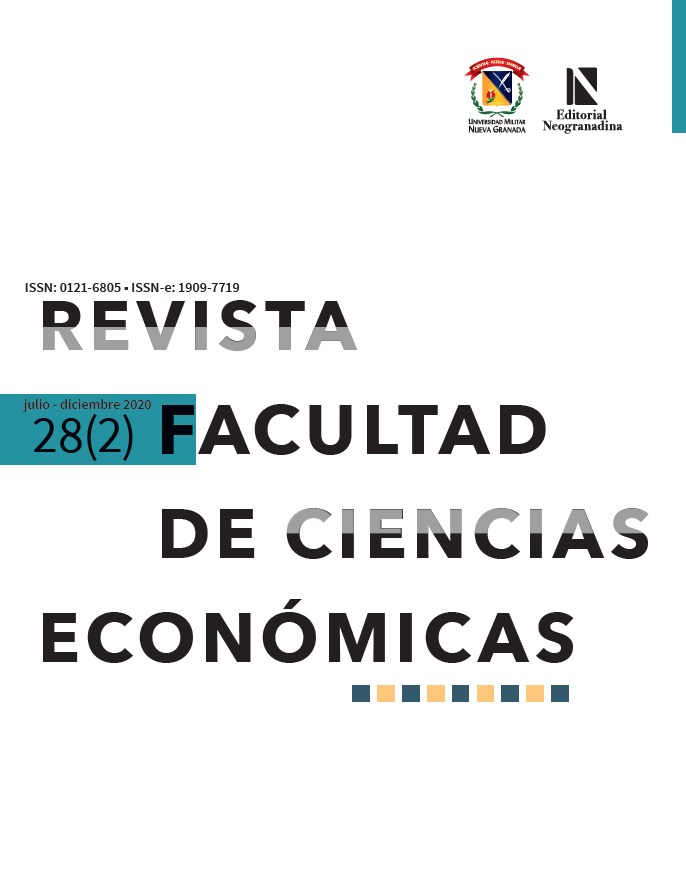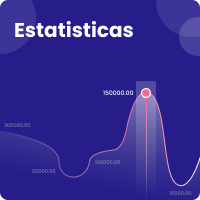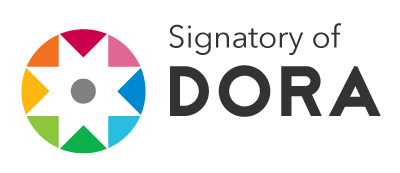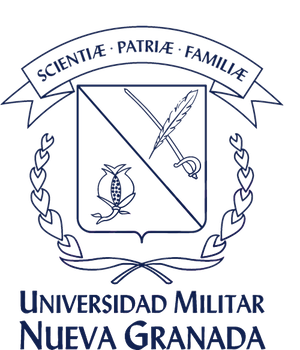Aprendizagem organizacional
uma delimitação conceitual para sua medição
Resumo
A aprendizagem organizacional (AO) vem sendo estudada como uma capacidade ou processo que permite melhorar a performance das organizações. Contudo, o campo de estudo da AO é caracterizado por contar com posicionamentos e definições heterogêneos ou não explícitos, a partir dos quais são construídos diversos modelos de medição. O objetivo deste trabalho é propor uma conceituação do fenômeno da AO sob uma perspectiva multidimensional que articule contribuições e elementos das diferentes definições, e indicar suas implicâncias metodológicas para avaliar o fenômeno. Para atingir esse objetivo, é realizada uma revisão sistemática da literatura nas bases de dados da Scopus e do Google Scholar. Os 36 artigos selecionados são analisados em profundidade em um processo iterativo de leitura, codificação e análise comparativa. A partir disso, são extraídos oito elementos centrais, descritos e articulados em uma proposta de definição de AO. Por último, é discutido o posicionamento ontológico e epistemológico que subsidia a conceituação do fenômeno proposta e são apresentadas as implicâncias em termos metodológicos para avaliar a AO. A principal contribuição deste artigo é o desenvolvimento de uma definição multidimensional da AO com um olhar ontológico e epistemológico do fenômeno, com vistas à sua medição. Dessa maneira, pretende-se superar definições reducionistas e reconhecer sua complexidade.
Downloads
Referências
Alegre, J. y Chiva, R. (2008). Assessing the impact of Organizational Learning capability on product innovation performance: an empirical test. Technovation, 28(6), 315-326. doi: https://doi.org/10.1016/j.technovation.2007.09.003
Alvesson, M., y Deetz, S. (1996). Critical theory and postmodernism approaches to organizational studies. En S. R. Clegg, C. Hardy y W. R. Nord (Eds.), Handbook of organization studies (pp. 191-217). Thousand Oaks, CA: Sage.
Appelbaum, S. y Goransson, L. (1997). Transformational and adaptive learning within the learning organization: a framework for research and application. The Learning Organization, 4(3), 115-128. doi: https://doi.org/10.1108/09696479710182803
Argyris, C. y Schön, D., (1996). Organizational learning II: theory, method and practice. Reading, MA: Addison-Wesley.
Bapuji, H. y Crossan, M. (2004). From questions to answers: reviewing Organizational Learning research. Management Learning, 35(4), 397-417. doi: https://doi.org/10.1177/1350507604048270
Bell, S. J., Whitwell, G. J. y Lukas, B. A. (2002). Schools of thought in Organizational Learning. Journal of the Academy of Marketing Science, 30(70), 70-86. doi: https://doi.org/10.1177/03079459994335
Bontis, N., Crossan, M. y Hulland, J. (2002). Managing an Organizational Learning system by aligning stocks and flows. Journal of Management Studies, 39(4), 437-469. doi: https://doi.org/10.1111/1467-6486.t01-1-00299
Burrell, G., y Morgan, G. (1979). Sociological paradigms and organizational analysis: elements of the sociology of corporate life. Portsmouth. NH: Heinemann
Cañedo Andalia, R. (1999). Los análisis de citas en la evaluación de los trabajos científicos y las publicaciones seriadas. Acimed, 7(1), 30-39. Recuperado de: https://bit.ly/34l3aa0
Chia, R. (1995). From modern to postmodern organizational analysis. Organization Studies, 16(4), 579-604. doi: https://doi.org/10.1177/017084069501600406
Chiva-Gómez, R. (2004). The facilitating factors for Organizational Learning in the ceramic sector. Human Resource Development International, 7(2), 233-249. doi: https://doi.org/10.1080/1367886042000243817
Chiva, R., Alegre, J. y Lapiedra, R. (2007). Measuring Organisational Learning capability among the workforce. International Journal of Manpower, 28(3/4), 224-242. doi: https://doi.org/10.1108/01437720710755227
Crossan, M. M., Lane, H. W. y White, R. E. (1999). An Organizational Learning framework: from intuition to institution. Academy of Management Review, 24(3), 522-537. doi: https://doi.org/10.5465/amr.1999.2202135
Crossan, M. M., Lane, H. W., White, R. E. y Djurfeldt, L. (1995). Organizational Learning: dimensions for a theory. The International Journal of Organizational Analysis, 3(4), 337-360. doi: https://doi.org/10.1108/eb028835
Deetz, S. (1996). Describing differences in approaches to organization science: rethinking Burrell and Morgan and their legacy. Organization Science, 7, 191-207. doi: https://doi.org/10.1287/orsc.7.2.191
Dimovski, V., Skerlavaj, M., Kimman, M. y Hernaus, T. (2008). Comparative analysis of the Organizational Learnig process in Slovenia, Croatia, and Malaysia. Expert Systems with Applications, 34(4), 3063-3070. doi: https://doi.org/10.1016/j.eswa.2007.06.024
Do, T. T. y Mai, N. K. (2020). Review of empirical research on leadership and Organizational Learning. Journal of Knowledge Management, 24(5), 1201-1220. doi: https://doi.org/10.1108/JKM-01-2020-0046
Dodgson, M. (1993). Organizational learning: a review of some literatures. Organization Studies, 14(3), 375-394. doi: https://doi.org/10.1177/017084069301400303
Easterby-Smith, M. (1997). Disciplines of Organizational Learning: contributions and critiques. Human Relations, 50(9), 1085-1113. doi: https://doi.org/10.1177/001872679705000903
Easterby-Smith, M. y Lyles, M. (2003). Organizational learning and knowledge management: agendas for future research. Oxford: Blackwell.
Edison, H., bin Ali, N. y Torkar, R. (2013). Towards innovation measurement in the software industry. Journal of Systems and Software, 86(5), 1390-1407. doi: https://doi.org/10.1016/j.jss.2013.01.013
Edmondson, A. C., y McManus, S. E. (2007). Methodological fit in management field research. Academy of Management Review, 32(4), 1155-1179. doi: https://doi.org/10.2307/20159361
Fasio, A. N. y Rutty, M. G. (2017). Hacia la identificación de dimensiones relevantes relacionadas con el Aprendizaje Organizacional. Trilogía Ciencia Tecnología Sociedad, 9(16), 85-99. doi: https://doi.org/10.22430/21457778.179
Field, L. (2020). Using fieldwork to deepen understanding of Organizational Learning and/or the learning organization. The Learning Organization, 27(3), 211-222. doi: https://doi.org/10.1108/TLO-11-2019-0166
Fiol, C. M. y Lyles, M. A. (1985). Organizational Learning. Academy of Management Review, 10(4), 803-813. doi: https://doi.org/10.5465/amr.1985.4279103
Garvin, D. A. (1993). Building a learning organization. Harvard Business Review, 71(4), 78-91. Recuperado de https://hbr.org/1993/07/building-a-learning-organization
Garza, Z., de la Garza Martínez, E., Castro, N. y Sánchez, V. (2016). Análisis del desarrollo del aprendizaje en sus tres niveles: individual, grupal y organizacional y su relación con la ventaja competitiva percibida de la empresa. Revista Internacional, 9(6), 81-91. Recuperado de: https://bit.ly/35orrv9
Garzón Castrillón, M. A. y Fisher, A. L. (2008). Modelo teórico de Aprendizaje Organizacional. Pensamiento & Gestión, (24), 195-224. Recuperado de https://www.redalyc.org/pdf/646/64602408.pdf
Goh, S. C. (2003). Improving organizational learning capability: lessons from two case studies. The Learning Organization, 10(4), 216-227. doi: https://doi.org/10.1108/09696470310476981
Goh, S. y Richards, G. (1997). Benchmarking the learning capability of organizations. European Management Journal, 15(5), 575-583. doi: https://doi.org/10.1016/S0263-2373(97)00036-4
Hatch, M. J. y Yanow, D. (2008). Methodology by metaphor: ways of seeing in painting and research. Organization Studies, 29(1), 23-44. doi: https://doi.org/10.1177/0170840607086635
Hernaus, T., Škerlavaj, M. y Dimovski, L. (2008). Relationship between Organizational Learning and organizational performance: the case of Croatia. Transformations in Business and Economics, 7(2), 32-48. Recuperado de https://bit.ly/2ThEOYl
Hill, R. (1996). A measure of the learning organization. Industrial and Commercial Training, 28(1), 19-25. doi: https://doi.org/10.1108/00197859610105440
Huber, G. (1991). Organizational Learning: the contributing processes and the literatures. Organization Science, 2(1), 1-147. doi: https://doi.org/10.1287/orsc.2.1.88
Hult, G. T. M. y Ferrell, O. C. (1997). Global Organizational Learning capacity in purchasing: construct and measurement. Journal of Business Research, 40(2), 97-111. doi: https://doi.org/10.1016/S0148-2963(96)00232-9
Jamali, D., Sidani, Y. y Zouein, C. (2009). The learning organization: tracking progress in a developing country: a comparative analysis using the DLOQ. The Learning Organization, 16(2), 103-121. doi: https://doi.org/10.1108/09696470910939198
Jerez-Gómez, P., Céspedes-Lorente, J. y Valle-Cabrera, R. (2005). Organizational Learning capability: a proposal of measurement. Journal of Business Research, 58(6), 715-725. doi: https://doi.org/10.1016/j.jbusres.2003.11.002
Kitchenham, B. A. y Charters, S. M. (2007). Guidelines for performing systematic literature reviews in software engineering. EBSE Technical Report 2007-01. Recuperado de https://userpages.uni-koblenz.de/~laemmel/esecourse/slides/slr.pdf
Lähteenmäki, S., Toivonen, J. y Mattila, M. (2001). Critical aspects of Organizational Learning research and proposals for its measurement. British Journal of Management, 12(2), 113-129. doi: https://doi.org/10.1111/1467-8551.00189
Lee, M. M. (2014). Dilemmas in defining HRD. En N. E. Chalofsky, T. S. Rocco, y M. L. Morris (Eds.), Handbook of human resource development, 97-111. Hoboken, NJ: Wiley.
Leitch, C., Harrison, R., Burgoyne, J., y Blantern, C. (1996). Learning organizations: the measurement of company performance. Journal of European Industrial Training, 20(1), 31-44. doi: https://doi.org/10.1108/03090599610105264
Levitt, B., y March, J. G. (1988). Organizational learning. Annual Review of Sociology, 14(1), 319-338. doi: https://doi.org/10.1146/annurev.so.14.080188.001535
Liao, S.-H. y Wu, C.-C. (2010). System perspective of knowledge management, Organizational Learning, and organizational innovation. Expert Systems with Applications, 37(2), 1096-1103. doi: https://doi.org/10.1016/j.eswa.2009.06.109
Lloria, M. B. y Moreno-Luzon, M. D. (2014). Organizational Learning: proposal of an integrative scale and research instrument. Journal of Business Research, 67(5), 692-697. doi: https://doi.org/10.1016/j.jbusres.2013.11.029
López Sánchez, J. Á., Santos Vijande, M. L. y Trespalacios Gutiérrez, J. A. (2008). Aprendizaje organizativo en la gestión empresarial y escuelas de pensamiento: evidencias empíricas. Cuadernos de Administración, 21(37), 81-107. Recuperado de https://www.redalyc.org/pdf/205/20503705.pdf
Massingham, P. (2014). An evaluation of knowledge management tools: Part 1 - managing knowledge resources. Journal of Knowledge Management, 18(6), 1075-1100. doi: https://doi.org/10.1108/JKM-11-2013-0449
Moilanen, R. (2005). Diagnosing and measuring learning organizations. The Learning Organization, 12(1), 71-89. doi: https://doi.org/10.1108/09696470510574278
Nicolini, D. y Meznar, M. B. (1995). The social construction of Organizational Learning: conceptual and practical issues in the field. Human Relations, 48(7), 727-746. doi: https://doi.org/10.1177/001872679504800701
Oh, S.-Y. y Han, H.-S. (2018). Facilitating Organizational Learning activities: types of organisational culture and their influence on Organizational Learning and performance. Knowledge Management Research & Practice, 18(1), 1-15. doi: https://doi.org/10.1080/14778238.2018.1538668
Örtenblad, A. (2018). What does “learning organization” mean? The Learning Organization, 25(3), 150-158. doi: https://doi.org/10.1108/TLO-02-2018-0016
Pérez López, S., Montes Peón, J. y Vázquez Ordás, C. (2004). Managing knowledge: the link between culture and Organizational Learning. Journal of Knowledge Management, 8(6), 93-104. doi: https://doi.org/10.1108/13673270410567657
Popova-Nowak, I. y Cseh, M. (2015). The meaning of Organizational Learning: a meta-paradigm perspective. Human Resource Development Review, 14(3), 299-331. doi: https://doi.org/10.1177/1534484315596856
Prange, C. (1999). Organizational learning —desperately seeking theory? En M. Easterby-Smith, L. Araujo y J. Burgoyne (Eds.), Organizational Learning and the learning organization: developments in theory and practice (pp. 23-43). Thousand Oaks, CA: Sage. Recuperado de https://bit.ly/35nS0AB
Robey, D., Boudreau, M.-C. y Rose, G. M. (2000). Information technology and Organizational Learning: a review and assessment of research. Accounting, Management and Information Technologies, 10(2), 125-155. doi: https://doi.org/c5w4fj
Senge, P. (1990). The fifth discipline: the art and practice of the learning organization. Nueva York, NY: Currency Doubleday.
Shrivastava, P. (1983). A typology of Organizational Learning systems. Journal of Management Studies, 20(1), 7-28. doi: https://doi.org/dv7dcn
Smith, P. A. C. y Tosey, P. (1999). Assessing the learning organization: part 1 - theoretical foundations. The Learning Organization, 6(2), 70-75. doi: https://doi.org/10.1108/09696479910262596
Song, J. H., Jeung, C.-W. y Cho, S.-H. (2011). The impact of the learning organization environment on the Organizational Learning process in the Korean business context. The Learning Organization, 18(6), 468-485. doi: https://doi.org/10.1108/09696471111171312
Templeton, G. F., Lewis, B. R. y Snyder, C. A. (2002). Development of a measure for the Organizational Learning construct. Journal of Management Information Systems, 19(2), 175-218. doi: https://doi.org/10.1080/07421222.2002.11045727
Tippins, M. J. y Sohi, R. S. (2003). IT competency and firm performance: is Organizational Learning a missing link? Strategic Management Journal, 24(8), 745-761. doi: https://doi.org/10.1002/smj.337
Ulrich, D., Jick, T. y von Glinow, M. A. (1993). High-impact learning: building and diffusing learning capability. Organizational Dynamics, 22(2), 52-66. doi: https://doi.org/10.1016/0090-2616(93)90053-4
Vasilachis de Gialdino, I. (Coord.). (2006). Estrategias de investigación cualitativa. Barcelona: Gedisa. Recuperado de https://bit.ly/35tmFfO
Vohra, N. y Thomas, N. (2016). Investigating Organizational Learning through social network analysis: the case of a consultancy firm in India. Thunderbird International Business Review, 58(6), 587-600. doi: https://doi.org/10.1002/tie.21777
Voolaid, K. y Ehrlich, Ü. (2017). Organizational Learning of higher education institutions: the case of Estonia. The Learning Organization, 24(5), 340-354. doi: https://doi.org/10.1108/TLO-02-2017-0013
Wang, C. L. y Ahmed, P. K. (2003). Organizational Learning: a critical review. The Learning Organization, 10(1), 8-17. doi: https://doi.org/10.1108/09696470310457469











